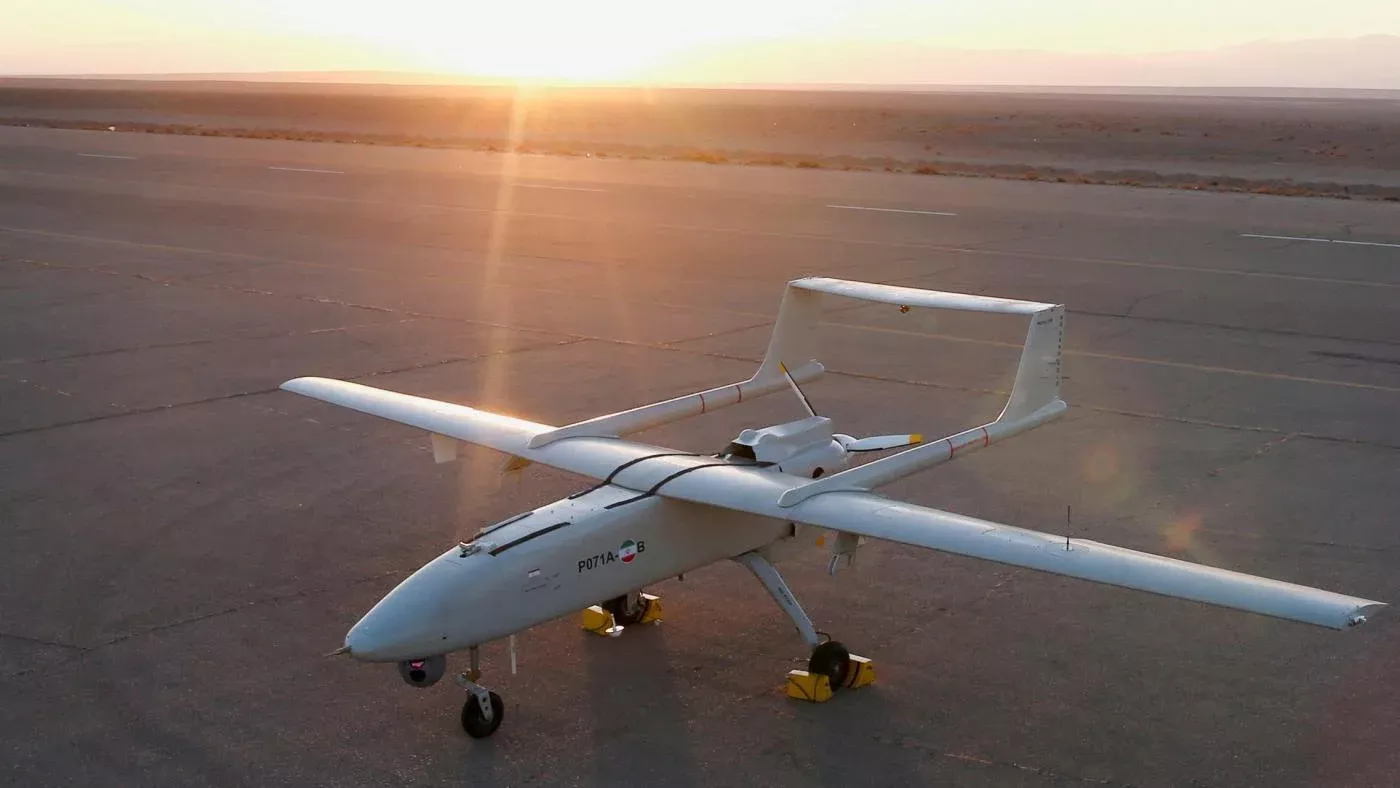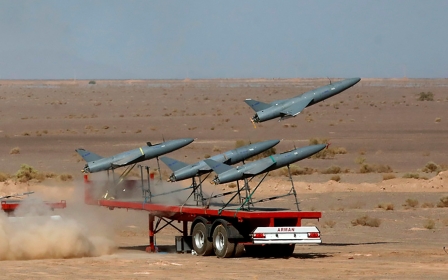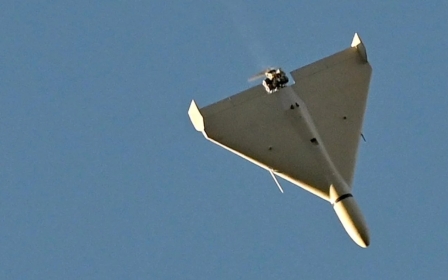What's the nature and extent of Iran-Russia defence cooperation?

Russia's war in Ukraine has led to unprecedented military-technical cooperation between Iran and Russia. But just how extensive is this cooperation, and how far will it likely go in the foreseeable future?
Russia's use of Iranian Shahed-136 loitering munitions - self-detonating drones used on fixed targets - against Ukraine's electricity infrastructure has been the most visible and striking example of military cooperation to date.
Moscow ordered more these 1,000 of these loitering munitions and reportedly reached an agreement with Tehran to build a drone factory in Russia. Moscow also seeks Iranian Fateh-110 and Zolfaghar short-range ballistic missiles (SRBMs), which would be much harder for Ukrainian air defences to shoot down than the Shahed drones.
For its part, Iran will reportedly receive advanced Russian Su-35 fighter jets as soon as 2023 as part of what the White House calls "an unprecedented level of military and technical support that is transforming their relationship into a full-fledged defence partnership".
But there are signs that this burgeoning partnership has already faced significant shortcomings.
For example, one reason Russia sought Iranian weaponry, aside from the severely limited alternatives it had post-24 February, was Iran's purported experience successfully developing drones and other systems in the face of Western sanctions.
However, many of the more advanced electronic components and semiconductors in these drones were made by Western companies and not indigenously developed by Tehran.
Between mid-November and 10 December, Russia did not use any Shahed-136 - dubbed "Geran-2" in Russian service - against Ukraine, indicating that it had briefly expended its first batch of about 400 delivered in August.
On top of this, there are indications that Iran might not deliver SRBMs any time soon. Tehran reportedly plans on reducing the range of any SRBMs it exports to avoid violating UN Security Council Resolution 2231.
A 'forced decision' for Russia
Anton Mardasov, an independent Russian analyst and non-resident scholar of the Middle East Institute's Syria programme, described Russia's procurement of Iranian drones as "a forced decision" since Russia had not originally planned strikes against Ukrainian infrastructure.
"These drones were actively used in the fall as an alternative to high-precision weapons against stationary objects that did not require prior reconnaissance," he told Middle East Eye.
While Russia already has its own drones deployed in Ukraine, such as the Lancet-3 loitering munition, they are insufficient for such a large-scale conflict and considerably more expensive than their Iranian counterparts.
"All in all, this cooperation is a forced step for the Russian side, which has thus become dependent on Iran, and, of course, one should not expect that the result of such cooperation will be products that will appear on the market," Mardasov said.
The Syrian war was a catalyst for cooperation because it gave the Russians an opportunity to get acquainted with Iranian drones, Marsdov added.
What's in it for Iran?
It’s not entirely clear what Tehran is getting in return for its supply of arms to Moscow.
It reportedly wants Russian Su-35 fighter jets to modernise its rapidly aging air force. In early November, Sky News cited a source claiming that Russia secretly transported a captured shipment of American and British weaponry to Iran along with 140 million euros (approximately $145 million) in cash, back in August.
"It is unlikely that Russia, which is not heavily reliant on Tehran in any significant way, would go out of its way to arm Iran with advanced weaponry," Arash Azizi, author of The Shadow Commander: Soleimani, the US, and Iran's Global Ambitions and a PhD candidate in history at New York University, told Middle East Eye.
'No matter how hard [Iran] tries to court Beijing and Moscow, they won't risk their important relations with the GCC and Israel so easily'
- Arash Azizi, New York University
"We should remember that Putin has excellent relations with many of Iran's rivals and adversaries in the region too: closest with Egypt's Sisi but also with UAE and even Saudi Arabia, not to mention Israel," he said.
"A tragedy for the Iranian regime is that no matter how hard it tries to court Beijing and Moscow, they won't risk their important relations with the GCC [Gulf Cooperation Council] and Israel so easily."
Mardasov doubts Russia will provide significant technology transfers of any military hardware it ultimately supplies to Iran.
"We do not know this yet, but I doubt that Russian and Iranian companies will establish targeted cooperation in terms of technology exchange: this would make Moscow even more dependent on Tehran," he said. "But some modernised drones based on Iranian ones could indeed be released by the Russian side."
Nevertheless, he argues that Iran will not act at a loss and that the contract to supply the Su-35 is the most realistic possibility given how obsolete the Iranian air fleet has become.
Samuel Bendett, a research analyst with the Center for Naval Analyses, pointed out that Iranian weaponry developed in the face of sanctions was useful for Russia, even if that weaponry does contain Western-built components.
"Russia is getting experience in using technology that was put together during sanctions - whether or not Iran used indigenous or civilian components is less relevant than the fact that Russia now has cheap expendable drones that can fly for hundreds of kilometres," he told Middle East Eye.
Iran's indigenous processes that acquired the imported technology for its drones will also be of importance for Russia, Bendett argues.
Bendett anticipates that Russia will pay for this Iranian hardware with what is of most interest to Iran - “whether it's cash, captured western technology or both".
"In this particular transaction, each side gets what it wants the most, and perhaps other items or processes may be on the table - like political support - as Russia prepares to either buy a new batch or produce a large batch of Shaheds domestically," he said.
Middle East Eye delivers independent and unrivalled coverage and analysis of the Middle East, North Africa and beyond. To learn more about republishing this content and the associated fees, please fill out this form. More about MEE can be found here.





